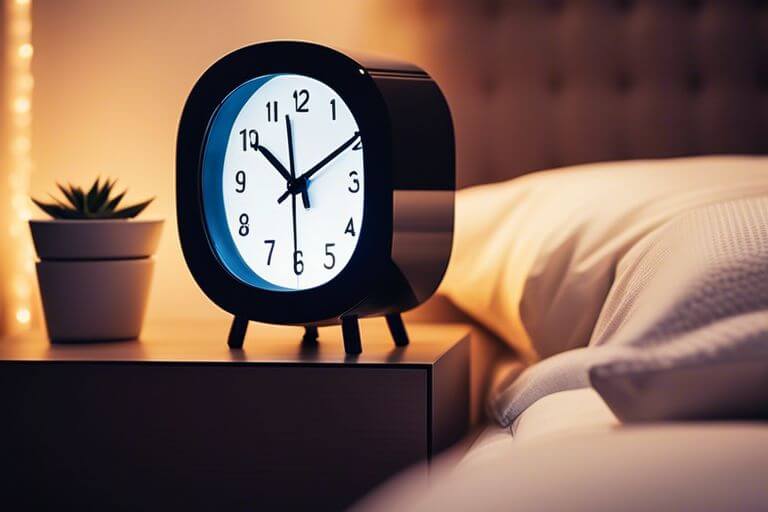Digital Detox – How Unplugging Improves Sleep Quality
Unplugging from digital devices can have a significant impact on the quality of your sleep.
The constant exposure to screens, be it phones, tablets, or computers, before bedtime can disrupt your body’s natural sleep-wake cycle.
This interference can lead to difficulties falling asleep, staying asleep, and achieving restful sleep.
By disconnecting from technology before bedtime, you allow your brain to unwind and signal to your body that it’s time to rest.
Research has shown that reducing screen time before bed can result in improved sleep quality, leading to better overall health and well-being.
So, if you find yourself struggling with sleep, consider implementing a digital detox to help you get the rest you deserve.
Understanding Digital Overload
Impact of Screen Time on Sleep
A constant stream of blue light from screens can disrupt the production of melatonin, the hormone that regulates sleep, making it difficult to fall asleep and stay asleep.
The stimulation from screens can also increase cognitive arousal, making it harder for the brain to wind down before bed.
Blue Light and Circadian Rhythms
The blue light emitted by electronic devices can interfere with the body’s natural circadian rhythms, confusing the brain into thinking it’s still daytime.
This disruption can lead to poor sleep quality and even insomnia.
It is important to be mindful of exposure to blue light, especially before bedtime.
With the prevalence of digital devices in our daily lives, it’s crucial to understand the impact they can have on our sleep quality.
Blue light exposure has been linked to a variety of sleep disturbances, including difficulties falling asleep and staying asleep.
By recognizing the effects of screen time and blue light on our circadian rhythms, we can take proactive steps to improve our overall sleep hygiene.
Strategies for Digital Detox
Setting Boundaries for Device Use
If you find yourself constantly checking your phone or engaging in screen time late into the night, it’s time to set some boundaries.
Establish specific times during the day when you will allow yourself to use devices, and designate device-free zones such as the bedroom to promote better sleep hygiene.
By creating clear boundaries for device use, you can reduce the temptation to scroll through social media or respond to emails late at night, ultimately improving your sleep quality.
Mindfulness and Relaxation Techniques
Device mindfulness and relaxation techniques can be powerful tools to help you unwind and prepare your body for rest.
Practice deep breathing exercises, meditation, or gentle yoga before bed to calm the mind and release tension from the body.
Mindfulness techniques encourage you to focus on the present moment and let go of distractions, which can help promote a more peaceful and restful night’s sleep.
For better results, consider using relaxation apps or guided meditations specifically designed to help with sleep.
These resources can provide structured guidance and support for incorporating mindfulness practices into your bedtime routine, facilitating a deeper sense of relaxation and aiding in the process of detoxing from digital devices before sleep.
Implementing Digital Detox for Better Sleep
Creating an Evening Routine
Your evening routine plays a crucial role in preparing your body and mind for a restful night’s sleep.
Begin by limiting screen time at least an hour before bed to reduce exposure to stimulating blue light.
Engage in relaxing activities such as reading a book, meditating, or taking a warm bath to unwind and signal to your body that it’s time to sleep.
Establish a consistent bedtime and wake-up time to regulate your internal clock and optimize your sleep quality.
Sleep Hygiene and Environmental Factors
Digital detox involves optimizing your sleep environment to promote better rest.
Factors such as keeping your bedroom dark, quiet, and cool can enhance your sleep quality.
Invest in a comfortable mattress and pillows to support your body throughout the night.
Remove electronic devices from the bedroom to minimize distractions and create a sleep-conducive environment.
Perceiving your bedroom as a sanctuary dedicated to rest and relaxation can improve your overall sleep experience.
Measuring the Effects of Digital Detox on Sleep
Self-Assessment and Sleep Tracking
Measuring the effects of digital detox on sleep often begins with self-assessment and sleep tracking.
Individuals can start by noting their sleep patterns, quality of sleep, and any disruptions caused by digital devices.
This process helps in understanding the baseline and tracking improvements post-detox.
Research Findings on Sleep Improvement
Research on the effects of digital detox on sleep has shown promising results.
Studies indicate that reducing screen time before bedtime can lead to better sleep quality and duration.
Participants who engaged in a digital detox experienced decreased levels of insomnia, reduced time to fall asleep, and improved overall sleep satisfaction.
Several studies have highlighted the impact of blue light emitted by screens on melatonin production, the hormone that regulates sleep-wake cycles.
By reducing exposure to screens, individuals can improve their melatonin levels and consequently enhance their sleep quality.
Summing up
Upon reflecting on the benefits of a digital detox in improving sleep quality, it is evident that disconnecting from electronic devices can have a positive impact on our overall well-being.
By prioritizing restful technology-free hours before bedtime, individuals can experience better sleep patterns, reduced stress, and enhanced mental clarity.
Implementing a digital detox routine can lead to improved sleep quality, ultimately promoting a healthier lifestyle and ensuring a more rejuvenated start to the day.

